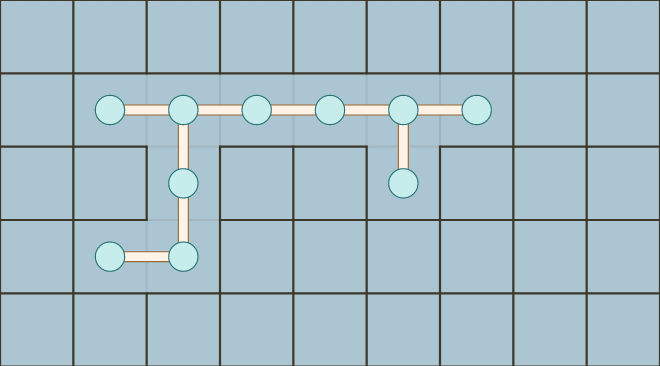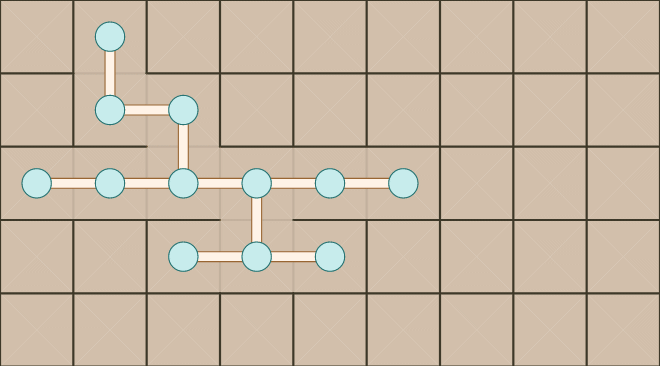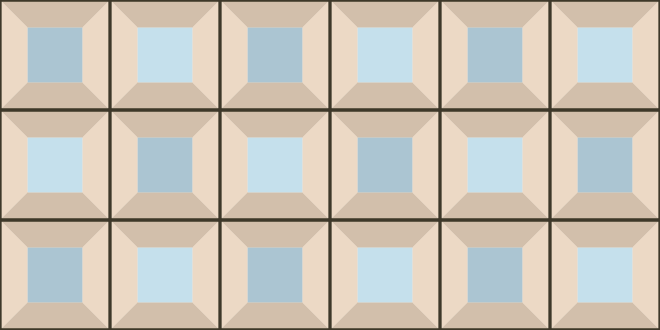Written by Reiko
Island of Dr. Brain was quite the puzzle-fest, and of course, for a puzzle-lover like me, it was fun to play. However, I suspect that the parts don't add up quite the same way they did for its predecessor. Let's see how the categories compare.
Puzzles and SolvabilityPuzzles! Definitely! But, like
Castle, they're all individual mental puzzles, several of them classic by this point, like Towers of Hanoi. Others include math puzzles, word searches and other word puzzles, jigsaws, programming, even music and art. They run the gamut of school subjects, in fact, and many of them are quite a bit more intellectual than the puzzles in
Castle.
 |
| The hardest puzzle in the game. |
On the whole, the game is a bit more difficult than
Castle: on Expert, most of the puzzles were more time-consuming than hard, but a few were genuinely more difficult, like the counterweight puzzle, which I needed a spreadsheet to solve. But the spread of subjects and the randomized puzzles may also raise the difficulty along the axis of variability. Still, every puzzle is logical and solvable, as long as you have all the relevant information. I only needed to use the extra information file for one or two puzzles, particularly the bookshelf puzzle, which references some people and places I wasn't familiar with.
Score: 8
Interface and InventoryLike
Castle, the main interface is the classic Sierra point and click interface, very straightforward. There are a few places to use inventory items, but they're all completely obvious and generally immediate: I think the only object used in a different room than where it was acquired was the bag of computer parts from the robot maze, used in the final room.
 |
| Inventory with the achievement board selected. |
The achievement board and batteries for the hint watch are considered objects in inventory for some reason. It was probably the simplest way to fit those functions into the Sierra interface. But they aren't inventory in the puzzle sense: they're game functions. The hint watch lets you get hints from Dr. Brain, and the achievement board shows your score and the status of solving puzzles. It was awkward to have to go into the inventory every time to see the board status. I would have preferred having separate menu buttons for those two functions, perhaps instead of having an inventory at all, given how few objects there are and how little interaction they get. In other words, the Sierra interface wasn't used as effectively as it could have been here.
Score: 6
Story and Setting
 |
| The mission in a nutshell. |
I'll repeat what I said about
Castle here: "The story is minimal, just enough to hang the puzzles on." Dr. Brain has another wacky place full of puzzles for no real reason except that the puzzles are the real point of the game. The island is just a place to hold puzzles and doesn't make any real sense (a village of robots? alien "cyborgs"? an art gallery with statues that talk?).
Dr. Brain periodically talks via the hint watch, but there is no other interaction with him besides receiving those messages, and no other characters at all. The game achieves its goal of being a puzzle-filled successor to
Castle, but there simply isn't much content in this category.
Score: 1
Sound and GraphicsCastle opened with a memorable theme and then had nothing that stood out for the rest of the game.
Island, on the other hand, has nothing particularly memorable, but each room has its own little tune that, on the whole, serves to enhance the experience and brighten the mood. The interface generally has reasonable sound effects for button presses and such, and Dr. Brain himself has voice-acted lines occasionally, but there is little other sound.
 |
| Dr. Brain's lab with some slightly-animated objects. |
Graphics are bright and quirky. The detail is fairly low-res, but it does the job. The animations are slightly better than in
Castle: Dr. Brain visibly speaks, for instance. Most of the puzzles have fairly static displays, but there are a few animated touches around the edges, like the flicker of the spectrum analyzer's fire, or background objects in the lab.
Score: 5
Environment and AtmosphereThe overall atmosphere here is wacky: this game doesn't take itself seriously. Well,
Castle didn't either, but it started out acting like it was going to and then gave that up pretty quickly. That means
Island is a bit more consistent throughout, then, but the silliness reaches much deeper: a robot village, a volcano-powered island-ship, a front door locked with nothing but a spatial puzzle. Okay, I guess that's slightly better security than a Simon puzzle, but not by much.
 |
| A volcano-powered island-ship is pretty silly. |
Every puzzle you solve results in a personal congratulations from Dr. Brain, who seems to have a very strange idea of the meaning of security. He must be a very rich and eccentric inventor indeed if he can afford to set up both a huge castle and an entire island full of impractical but not impossible puzzles and expect the sheer volume of hoop-jumping to be a sufficient deterrent to anyone with sticky fingers. It makes me wonder where he actually lives. Well, I'm clearly overthinking things here.
For
Castle, I had said there's no need for backtracking, since items are automatically collected, and all puzzles have to be solved to advance, and remain solved.
Island doesn't require backtracking for mostly the same reasons, but the player can backtrack and replay puzzles. This
can be helpful for collecting extra hint coins to use on a difficult puzzle, or to gain plaques for other difficulty levels or extra bonus points just for replaying. This makes Island feel more like a place that can be explored and enjoyed rather than simply conquered once.
Score: 4
Dialog and Acting
 |
| One of the better examples of the humor, such as it is. |
There is very little dialog, and most of that is simply messages from Dr. Brain through the hint watch. The rest of the text is just puzzle explanations and descriptions of wacky items in the environment. Many involve jokes, but they aren't very punny. I'd click around on a few things on each screen to see if there was anything interesting, but I didn't have the same compulsion as in
Castle (or the
Quest for Glory games, for that matter) to click on every object to see what funny description I'd find. And there just weren't as many interesting things to look at, either.
 |
| Explicit instructions for the gear puzzle. |
The puzzle descriptions are clear and often quite lengthy, as some of the puzzles are quite complicated. The elevator gear puzzle stood out to me as one that offered a detailed explanation of the procedure for solving it, which was particularly odd in certain cases when the solution turned out to be trivial. The counterweight had a detailed explanation also, because it was a comically complicated puzzle for what should have been a simple concept: fill a bucket.
Dr. Brain does have some minimal voice acting this time, but his lines mostly consist of a too hearty "Congratulations! You have received a [level] [subject] plaque." He gives a handful of other comments when the player reaches certain rooms of the island, mostly reminding the player why they're on the island in case they forgot, although it hardly matters.
Score: 3
That adds up to a total score of 8+6+1+5+4+3 = 27/60*100 = 45.
As it turns out, that is exactly the same as the original score for Castle of Dr. Brain, but the distribution is a little different. The puzzles are harder and more varied, but the interface isn't used quite as well. The story is exactly as minimal, and the sound and graphics are only a tiny bit better. The environment is more consistently strange and more explorable, but the dialog is more functional and less amusing. It really balances out.
Rating this was really hard because it was fun to play, but mostly because I liked the challenge of the higher difficulty:
Castle felt easy to me even on Expert level.
Island is certainly more educational and covers a wider range of topics and puzzle formats. But is it actually a better
game? The scores were so close, but I decided in the end that it wasn't. It doesn't get that bonus point that
Castle got for being an overall more charming and coherent experience.
Fifteen people made guesses ranging from 56 to 40. Laertes was the only one to guess exactly 45. But TBD also gets an honorable mention because he specifically said, "Exactly the same as the first." The base score was exactly the same, and it was the bonus point that made the difference.
CAP Distribution100 points to Reiko
- Blogger award - 100 CAPs - For blogging through this game for our enjoyment
10 points to Laertes
- Psychic Prediction award - 10 CAPs - For guessing the score for Island of Dr. Brain
10 points to TBD
- Psychic Prediction award - 5 CAPs - For guessing that Island would score the same as Castle
- Genre Lover Award - 5 CAPs - for posting about a free adventure game on GOG
7 points to Voltgloss
- Permutational Cipher award - 5 CAPs - For expounding on the differences between ciphers
- Maize Maze award - 2 CAPs - For his homonym joke about corn
7 points to Lisa H.
- Cyber History award - 5 CAPs - For expounding on the history of cyborg and cybernetics
- Kiwi Korrection award - 2 CAPs - For correcting that kiwi are from New Zealand, not Australia
7 points to MisterKerr
- Dr. Brain Fan award - 5 CAPs - For linking to his Dr. Brain Let's Play
- Cinnamon Apple award - 2 CAPs - For catching the pun on Synonym Apple
5 points to Corey Cole
- Sierra History award - 5 CAPs - For explaining why he didn't design Island
5 points to Charles
- Dire Straights award - 5 CAPs - For the closest guess in the sixth Straights of 1992
5 points to Lupus Yonderboy
- Dire Straights award - 5 CAPs - For the closest guess in the sixth Straights of 1992
2 points to Harwin
- Logic Analyzer award - 2 CAPs - For correcting my logic gate solution
2 points to ShaddamIVth
- Kiwi Kontext award - 2 CAPs - For pointing out the other meanings of the word "kiwi".
And that's a wrap for
Island of Dr. Brain. I'll be back shortly with
Rome: Pathway to Power, which is also not your typical adventure game.











